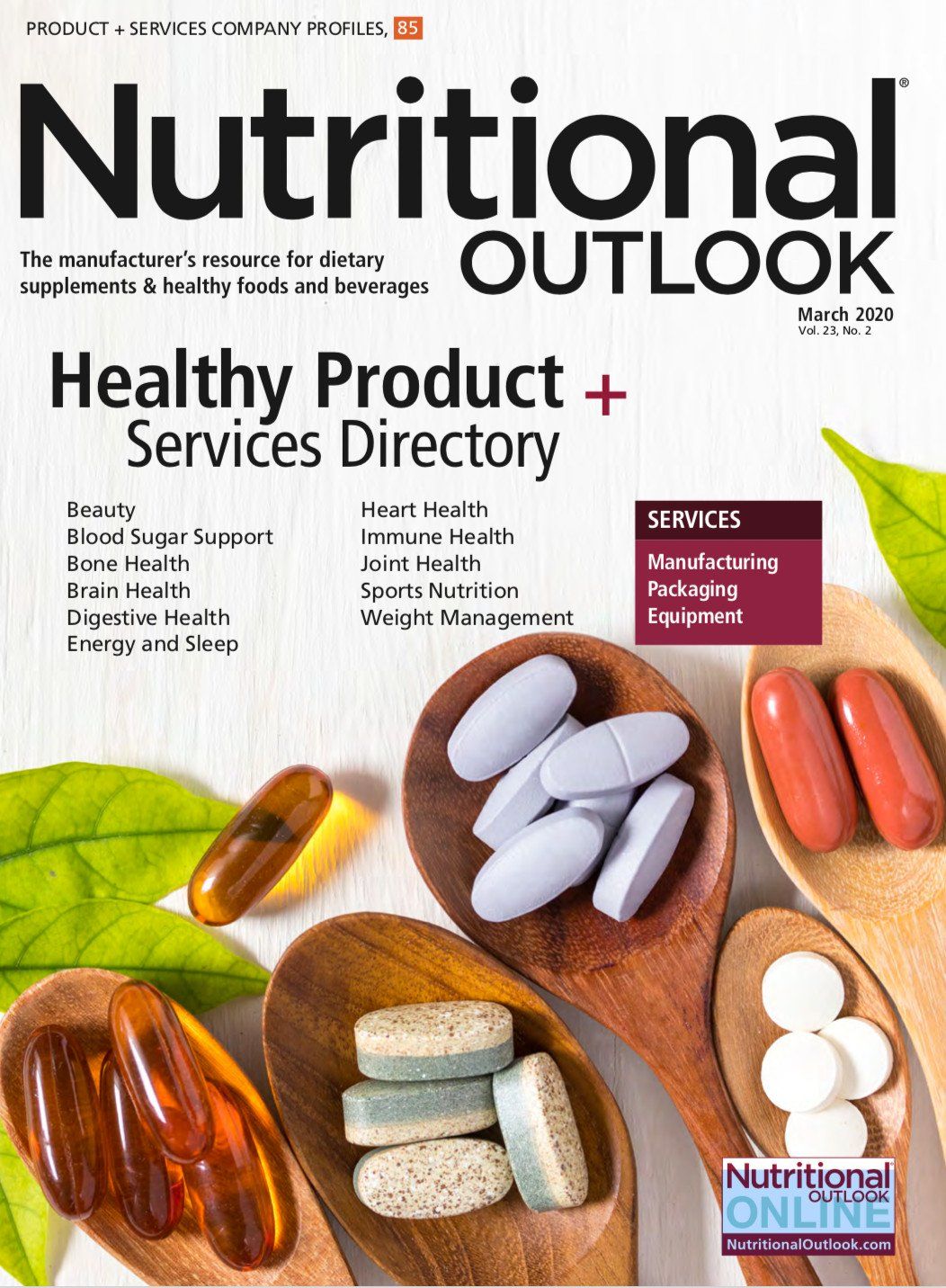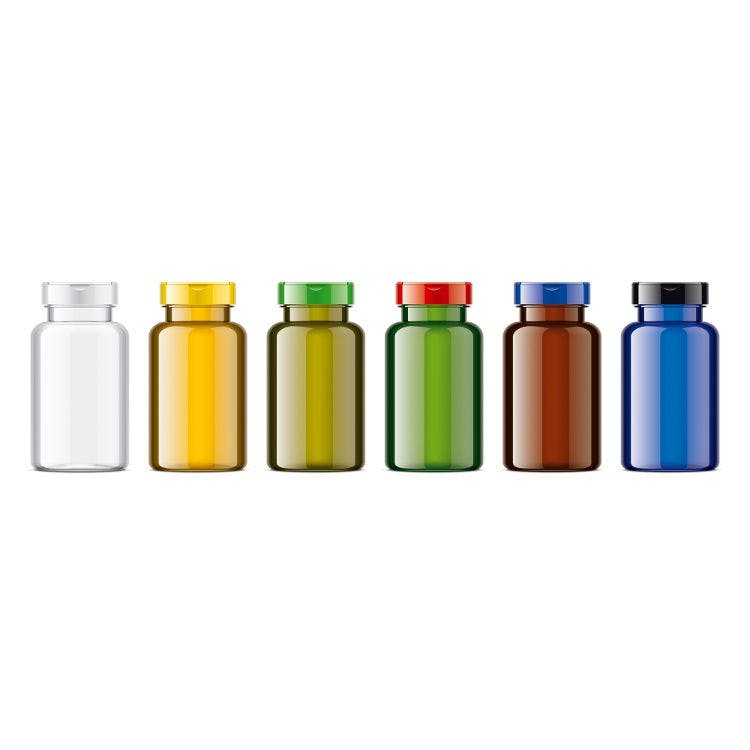Digestive Health: Powered by probiotics and gut-friendly food
Digestive health market snapshot: The mainstays of the digestive health market are holding strong.
Photo credit © RyanKing999 - Stock.adobe.com

One in four people in the U.S. report dealing with a digestive issue on a daily basis, according to a 2017 report from market researcher Innova Market Insights. This can range from mild stomach upset to debilitating symptoms like pain and diarrhea. Perhaps this is why dietary supplements for digestive health are particularly popular among consumers.
According to the Council for Responsible Nutrition’s (CRN; Washington, DC) 2019 Consumer Survey on Dietary Supplements, 17% of supplement users take dietary supplements for digestive health, with those aged 35-54 demonstrating the most interest in this health benefit.
As far as consumer awareness, last year ingredients supplier Kerry (Beloit, WI) conducted its own research and was able to show that, in particular, high numbers of consumers across the world understand the benefits of probiotics for gut health. More specifically, around eight in ten (79%) of Americans surveyed perceived probiotics to provide digestive health benefits. In the UK, 72% of consumers who were aware of cultures-a term sometimes used to describe probiotics-were able to correctly identify their benefits for digestive health.
Julian Mellentin, director of New Nutrition Business, and author of its latest report “10 Key Trends in Food, Nutrition, and Health 2020,” believes consumers are willing to accept digestive benefits from a wider array of products than ever before. To that end, they are particularly interested in fermented foods with a backstory of traditional usage, such as kefir or kombucha.
Mellentin goes on to say that digestive health is also strongly connected to probiotics or “live bacteria.” He emphasizes that the biggest opportunity is for probiotics that can really deliver benefits.
“Beyond that,” he says, “consumers turn to whole foods (such as fruit and grains), gluten-free foods, or plant milks or lactose-free dairy or (emergent) goats or sheep dairy.”
“This share of mind that whole foods and probiotics have in digestive makes it challenging for other ingredient types to gain a foothold,” he adds.
Fibers also have an established place within the segment-but their presence on a label might no longer be a compelling point of difference, Mellentin says. “When you say ‘fiber,’ you need to have another benefit alongside-such as ‘less sugar/no sugar’-to get consumers’ attention,” he comments.
In terms of market performance, probiotics have been quite impressive during the last decade based on estimates from Nutrition Business Journal (NBJ).
Every single year since 2006, sales of probiotic supplements have shot up considerably, according to NBJ data. Take 2012, for instance, during which probiotics notched 27% growth over 2011. Even recession-plagued 2009 saw probiotic sales jump an impressive 24% in one year.
“This explosive growth tracks with probiotics moving mainstream,” said NBJ. “Fueled by an avalanche of microbiome research, more medical doctors and pharmacists are recommending probiotics for digestive health, and [with] the proliferation of products like Dannon’s heavily marketed Activia yogurt, probiotics have practically become a household term.”
Mellentin believes evolving microbiome science will also pave the way for other possible benefits for probiotics, including skin, heart, and brain health, as well as weight management.
Healthcare Impact of Probiotics
A recent study1 found that probiotics could reduce healthcare costs and the societal impact of flu-like infections across the U.S. The analysis considered the impact of generalized probiotic intake from a healthcare payer’s perspective in primary care, as well as in a broader societal setting by including productivity loss associated with flu-like respiratory tract infections (RTI).
The model accurately reproduced the U.S. population structure, the incidence pattern, and the risk factor prevalence over the study period. Two meta-analyses reported clinical benefits of probiotics, one showing a reduction of disease duration and the other both a decrease of disease incidence and duration.
While the changes are small at an individual level, when applied to the U.S. population, the health impact is sizable, ranging from an estimated 19-54 million eliminated RTI sick days, 1-2 million averted antibiotic courses, and 3.5-4 million avoided missed workdays, according to the York Health Economics Consortium (YHEC) scenario and the Cochrane scenario, respectively. The Cochrane scenario showed a higher overall impact on public health due to the fact that it considered both a shorter RTI duration and a reduced RTI incidence.
In terms of cost savings, the impact of avoided RTI events, translated to the U.S. population, represented a potential total amount of approximately $1.4 billion, of which $370 million represents savings for the healthcare payer.
Prebiotics: The Perfect Probiotic Partner
The prebiotic fiber inulin is having its moment in the sun thanks to strong consumer desire for less sugar, for more protein, and for products that support digestive wellness, according to Mellentin.
“Inulin has become a success as a natural sugar replacer, used in an ever-growing number of products, and its presence means that companies can also flag up the enhanced fiber content on the label,” he says.
Sales of breakfast cereals have suffered in recent years, both from the lower sugar and lower carb trends, but many brands are discovering that they can gain sales in a challenging market by using inulin to offer both a digestive wellness benefit and a low-sugar promise, “two of the biggest consumer growth trends,” Mellentin claims.
Troo Granola, for example, uses inulin syrup in its products because it serves both as a prebiotic fiber and a sweetener, giving a more appealing taste to consumers while keeping the sugar low.
“For companies who choose to use inulin in their brands for digestive benefits, a big plus is that it delivers a ‘feel-the benefit’ effect-one of the most compelling reasons for someone to keep buying a product and one of the biggest marketing advantages you can have,” says Mellentin.
“These benefits have caused demand for inulin to surge. The number of products launched that feature inulin doubled between 2012 and 2019,” he adds.
References:
- Lenoir-Wijnkoop I et al. “Probiotics reduce health care cost and societal impact of flu-like respiratory tract infections in the USA: An economic modeling study.” Frontiers in Pharmacology. Published online August 28, 2019.

Polyphenols: The next generation of prebiotics is ready for liftoff
April 21st 2025Explore the prebiotic health benefits of polyphenols and the positive impact they may have on digestive and immune health. Polyphenols, such as those found in European black elderberry, may be an ideal solution for manufacturers trying to break into the digestive health space.

























